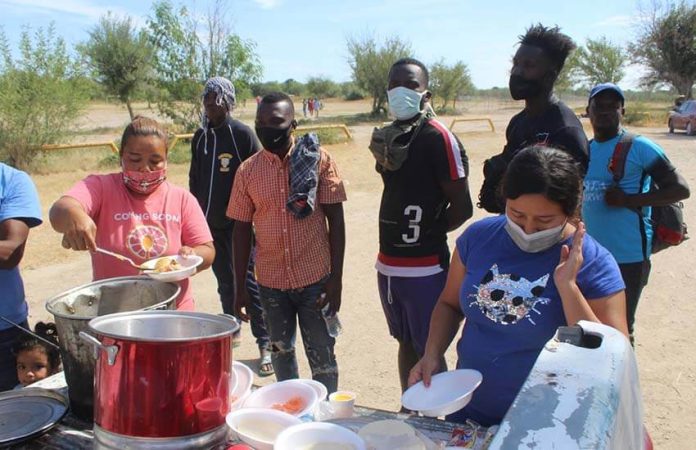Haitian migrants who returned to Mexico after giving up on their quest to find asylum in the United States have received a helping hand from some residents of Ciudad Acuña, Coahuila.
More than 14,000 mainly Haitian migrants recently crossed the Rio Grande and gathered in a makeshift camp below the international bridge that connects Ciudad Acuña to Del Rio, Texas.
Some 2,000 were returned to Haiti on repatriation flights from the United States last week while many others remain in U.S. immigration facilities.
Some decided to return to Mexico to avoid likely deportation to Haiti, a country plagued by poverty, political turmoil and frequent natural disasters, including a devastating earthquake last month.
Hundreds of Haitians set up camp in a Ciudad Acuña park late last week after the camp on the U.S. side of the Rio Grande was cleared, while some found refuge in the homes of generous locals.
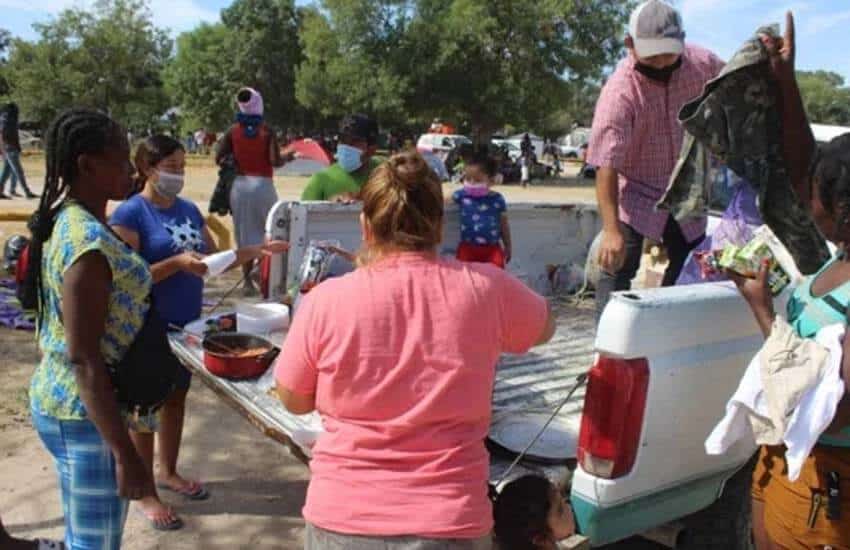
Those in the Braulio Fernández Ecological Park, located on the southern banks of the river, received free food, water and clothes from altruistic acuñenses, as locals of the border city are called. One such person is Mayra Lorena Arredondo, who along with her six children and son-in-law prepared chicken sandwiches and rice for the Haitians and gave them apples, juice and bottles of water.
“We were motivated by the necessity they have now; it’s very sad that they’re coming in search of a new future but they’re closing the doors on many of them,” Arredondo told the newspaper El Universal.
“They have nothing to eat,” she said. “While we can help them with something, we’ll be here supporting them.”
The 42-year-old mother said she wanted to instill the importance of charity and solidarity in her children and noted that they could someday find themselves in a situation in which they, too, required assistance.
“They [the migrants] need help. … If God allows me and blesses me, I will continue to come,” Arredondo said.
Victoria Alejandra Palomares and her family also took food to the Haitians camping out in the park.
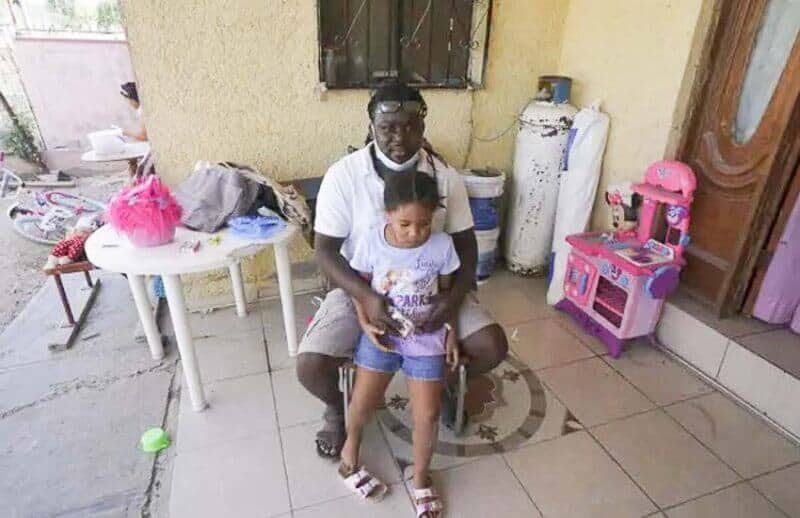
“I was moved by seeing the migrant children,” she said. “I wanted to come and give them something to eat. … We want to give them things, not sell to them. … We didn’t bring much.” Palomares then rattled off a long list that included rice, chicken, soup, Coca-Cola, bananas, popsicles, shoes and clothes.
“Poor things; it makes me sad seeing them like this. My husband works on farms, but we left everything to come here today.”
Virginia Salazar and her husband Mensah Montant, a Togolese man who arrived in Mexico as a migrant nine years ago, also came to the Haitians’ assistance.
The Associated Press reported that Salazar and Montant have delivered rice to one home where Haitians were staying, took medicine to another and were looking for a mattress for one family. All told, they have provided personal assistance to about a dozen Haitians.
Salazar, a cleaner, told AP that she came from a family of migrants, so she is aware of the challenges they face. “There’s my husband, and I have one sister who has documents and another who is illegal [in the United States],” she said. “ [Helping] comes naturally to me.”
Andrea García, a 24-year-old hairstylist, and her family have gone above and beyond in helping Haitians in Ciudad Acuña, providing accommodation in six houses they own. “They arrived at my house alone, with their babies … they said there was no place they could go,” García said, referring to one family she helped.
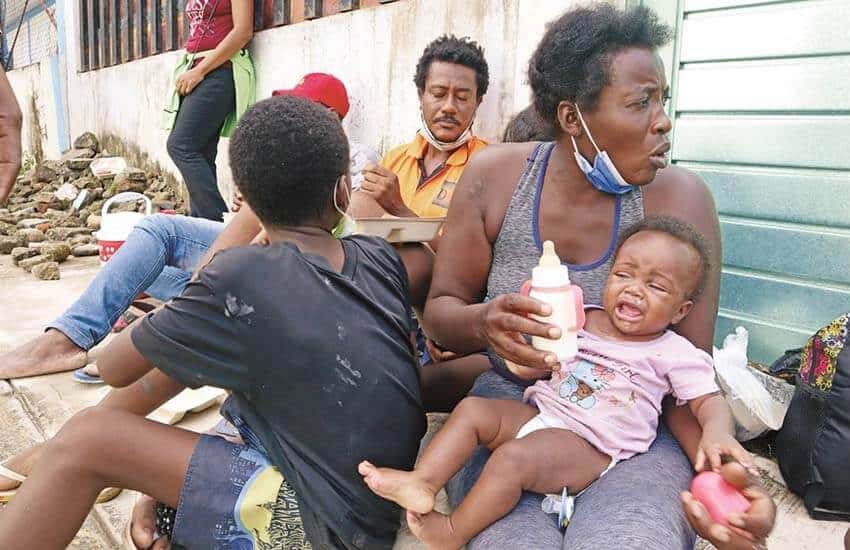
“Yes, I am worried, afraid because Mexican immigration agents are going into people’s houses and are not giving them a chance at the process” to apply for residency, she said. “But it is more sad than scary to see how they pray when they see an immigration van.”
Mexican immigration agents have told Haitians in Ciudad Acuña that they must return to Tapachula, Chiapas, to apply for asylum in Mexico. Some have been bused to the city, located more than 2,300 kilometers south.
However, most Haitians are reluctant to return to Tapachula because having already passed through the city, they know what to expect: a lack of work opportunities, overwhelmed migrant services and long wait times at the Mexican Commission for Refugee Assistance, which is responsible for processing asylum claims.
Many of the Haitians — a large number of whom previously spent time in South American countries such as Chile and Brazil — left Tapachula without Mexican papers because they had been stranded in the city for weeks or months and were unsure whether they would ever be issued documents that allowed them to travel legally through the country.
Hundreds were recently detained by immigration agents and the National Guard as they made their way through Chiapas on foot.
AP reported last week that Haitians in Mexico will soon be deported on repatriation flights from Tapachula and Monterrey, Nuevo León, while the National Immigration Institute said in a statement on Sunday that flights to Haiti from Tapachula and Villahermosa, Tabasco, would be offered starting next week to “those who voluntarily wish to return to their country.”
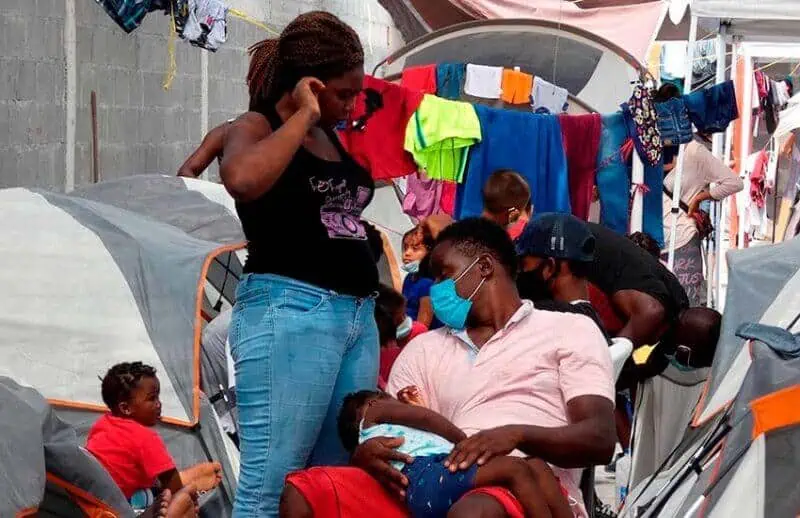
In addition to Ciudad Acuña and Tapachula, another city overwhelmed with migrants is Reynosa, Tamaulipas. One shelter alone is currently hosting almost 1,200 Central American and Haitian migrants — a figure triple its capacity — with many sleeping in more than 200 tents set up on its grounds.
Amid the high demand for its services, the Casa Senda de Vida (Path of Life House) ran out of food and other provisions, prompting its management to appeal for help from citizens, social organizations and all three levels of government.
“We have 27 volunteer cooks who can do nothing because we have nothing to prepare,” director Héctor Silva told El Universal. “About 10 boxes of chicken are used here for a meal. We [also] use sacks of potatoes, vegetables, eggs, milk and cereal for the kids, but we don’t have any of that.”
A short time later, the shelter received a donation of cleaning supplies, hygiene products and medications, as well as chicken, rice, potatoes and broccoli, which were quickly cooked and served to the migrants. But with 1,200 hungry mouths to feed, plenty more supplies are required.
“We want to help … because there is a lot of necessity,” said Miguel Ortiz, a Reynosa resident who collected funds to put toward the purchase of food for the shelter.
“There are a lot of children here who are not to blame for the fact that their governments or countries can’t provide them with a good environment to live in.”
With reports from El Universal and AP
